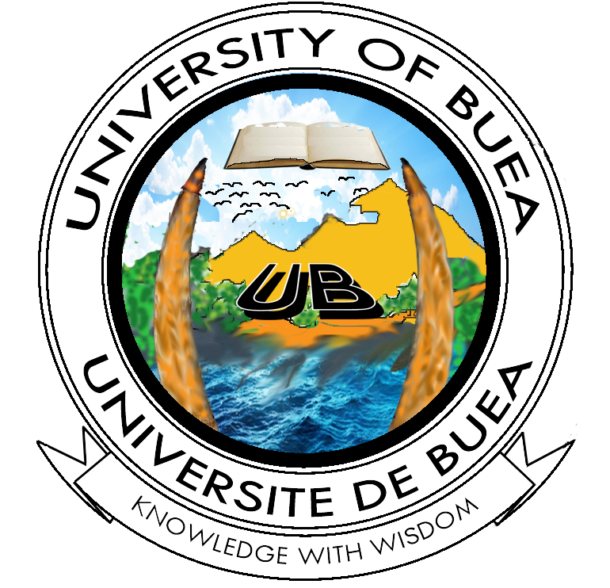Duration: 3 years
Fee Paying: No
Admission Requirements
For undergraduate admission, candidates must have passed the G.C.E ordinary level in at least 5 papers including English and Mathematics, before obtaining two G.C.E Advanced level papers, one in Biology and the other in another science subject.
Objectives
Zoology ranges from the study of molecules to that of animal communities. The objectives of the degree programme are:
- To give the student a good foundation not only in descriptive biology and zoology in particular, but also in the experimental and analytical aspects, based on the understanding of underlying physical, chemical and mathematical principles.
- To define the organisation of the whole life and its evolution in all its aspects, and to apprehend the unity which underlies the diversity of animal structures.
- To understand the architectural principles on which living organisms are constructed, the functioning of the various parts, and the mechanism responsible for the development of their complex structure.
- To study the relations and interactions between plants and animals and their environment.
- To introduce the students to the applications of zoology to other pure and applied biological disciplines such as agriculture, animal husbandry, medicine (medical and veterinary), environment, food and textile industries, etc.
Graduation Requirements
Students are expected to spend a minimum of three academic years (6 semesters) to graduate with a Bachelor of Science degree in Zoology. The minimum number of course credits for the degree shall be 162 in addition to 18 university credits; (four each for Basic Information Technology Skills, Use of English, Functional French, and Civics and Ethics and two for sports). A student is expected to take either a structured minor which has been built into the degree programme or may choose electives from the list indicated under the course requirements to complete the credit requirements for the degree.
Skills Acquired
The student acquires theoretical and practical knowledge of the physiology and anatomy of the invertebrate and vertebrate phyla. He/she understands the concepts and principles of how animals achieve their life requirements. He/she acquires skills in applied Zoology in relation to agriculture, fisheries, animal husbandry, medicine (medical and veterinary), environment, food, textile industries, etc.
Employment Opportunities
The B.Sc. graduate in Zoology is suited for immediate employment or for specialised postgraduate training. A first degree in zoology can lead to a wide variety of jobs in schools, industries (food, textile, etc), agriculture, livestock production, environment or can lead to self-employment.
Courses
Compulsory Courses
- BCH202: Biophysical Chemistry and Bioenergetics
- BCH301: Structural Biochemistry I
- BCH302: Metabolic Biochemistry I
- BCH303: Structural Biochemistry II
- BCH310: Genetics
- BCH401: Enzymology
- BCH404: Molecular Biology
- BCH405: Metabolic Biochemistry II
- BCH412: Introduction to Biotechnology and Bioinformatics
- BIO201: Cell biology
- BIO401: Biometry and Research methods
- CHM201: General Chemistry
- CHM244: General Organic Chemistry
- CHM343: Chemistry of Organic Compounds
- MAT211: Mathematical Methods
- MCB301: General Microbiology
- MCB402: Immunology
- PHY220: GeneralPHYsics
Elective Courses
- BCH311: Tissue and Organ Biochemistry
- BCH312: Nutritional Biochemistry
- BCH409: Supra-Molecular Assembles
- BCH410: Biochemical Methods II
- BCH414: Biochemical Pharmacology
- BCH416: Clinical Chemistry
- BCH498: Research Project in Biochemistry
- BIO301: General Ecology and Conservation
- BOT201: Lower Plants
- BOT202: Higher Plants
- BOT308: Principles of Taxonomy andPHYtography
- BOT401: Plant Anatomy and Histology
- BOT412: Principles and Methods in PlantPHYsiology
- CHM312: Analytical Methods in Chemistry
- CHM325: Inorganic Chemistry
- CHM402: Chemistry and the Environment
- CHM438: Chemical Thermodynamics
- CHM441: Organic Synthesis and Reaction Mechanisms
- MLT201: Human Biology - Anatomy and physiology
- MLT202: Human Pathology
- MLT301: Haematology
- MLT302: Endocrinology
- MLT401: Clinical Biochemistry and Analytical Chemistry
- MLT402: Basic Pharmacology and Pharmacological Biochemistry
- ZOO201: Invertebrate Zoology
- ZOO202: Vertebrate Zoology
- ZOO302: AnimalPHYsiology
- ZOO402: Animal Behaviour and Evolution
- ZOO405: General Parasitology
Language Requirements
- ENG101: Use of English I
- ENG102: Use of English II
- FRE101: Functional French I
- FRE102: Functional French II


